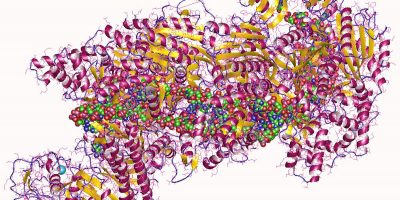New Genetic Engineering (GE), Genome Editing: EU Commission Spreading Misinformation
Testbiotech warns against disregarding scientific evidence

All Global Research articles can be read in 51 languages by activating the “Translate Website” drop down menu on the top banner of our home page (Desktop version).
Visit and follow us on Instagram at @crg_globalresearch.
***
The EU Commission has rejected criticism of its report on plants and New GE (New Genetic Engineering, genome editing). In a letter to Testbiotech, the Commission stated that there were no new risks associated with plants derived from genetically engineered plants compared to conventionally bred plants, as long as no transgenes were inserted. The Commission is directly repeating claims made by industry and affiliated experts that are contrary to existing scientific evidence. Testbiotech is therefore warning against the spread of misinformation and disregarding of science.
The EU Commission refers to two methods of genetic engineering: these are targeted mutagenesis (New GE), which uses tools such as CRISPR/Cas, and cisgenesis, which involves the use of genetic engineering to transfer genes within the same or closely related species. In its letter, the Commission states: “Finally, based on EFSA scientific opinions and a significant part of scientific bodies, the study finds that plants obtained by targeted mutagenesis and cisgenesis do not pose new risks compared to conventionally bred plants.”
The statement shows that the Commission is in effect ignoring all the scientific evidence that New GE is indeed associated with new and specific risks. For example, experts from environmental authorities in Austria, Germany, Italy, Poland and Switzerland recently published a joint scientific paper showing that all plants derived from New GE should be subjected to mandatory risk assessment that considers intended and unintended effects.
The reason: Tools such as CRISPR/Cas make the genome available for changes to larger extent compared to conventional breeding. They enable genetic changes which would otherwise be unlikely to occur. In many cases, the resulting intended and unintended effects as well as risks can be clearly distinguished from those associated with conventionally bred plants.
The Commission refers in its letter to European Food Safety Authority (EFSA) opinions. However, more detailed analysis shows that the claim made by the Commission is not actually supported by the EFSA. First of all, EFSA never had a mandate to comprehensively examine the risks arising from New GE techniques. Secondly, in one of its reports on New GE, EFSA emphasises that the genetic changes arising from targeted mutagenesis can go far beyond those of any genetically engineered plants submitted for risk assessment so far.
Testbiotech has criticised the Commission for incorporating strongly biased terminology and an industry-led perspective into its report on New GE, which are clearly not sufficiently based on the science.
This all creates the impression that the Commission is actively supporting the extreme demands of industry to deregulate New GE plants. However, according to a ruling of the EU Court of Justice, these plants must be subjected to a mandatory approval process since they carry risks for health and the environment.
*
Note to readers: Please click the share buttons above or below. Follow us on Instagram, @crg_globalresearch. Forward this article to your email lists. Crosspost on your blog site, internet forums. etc.

